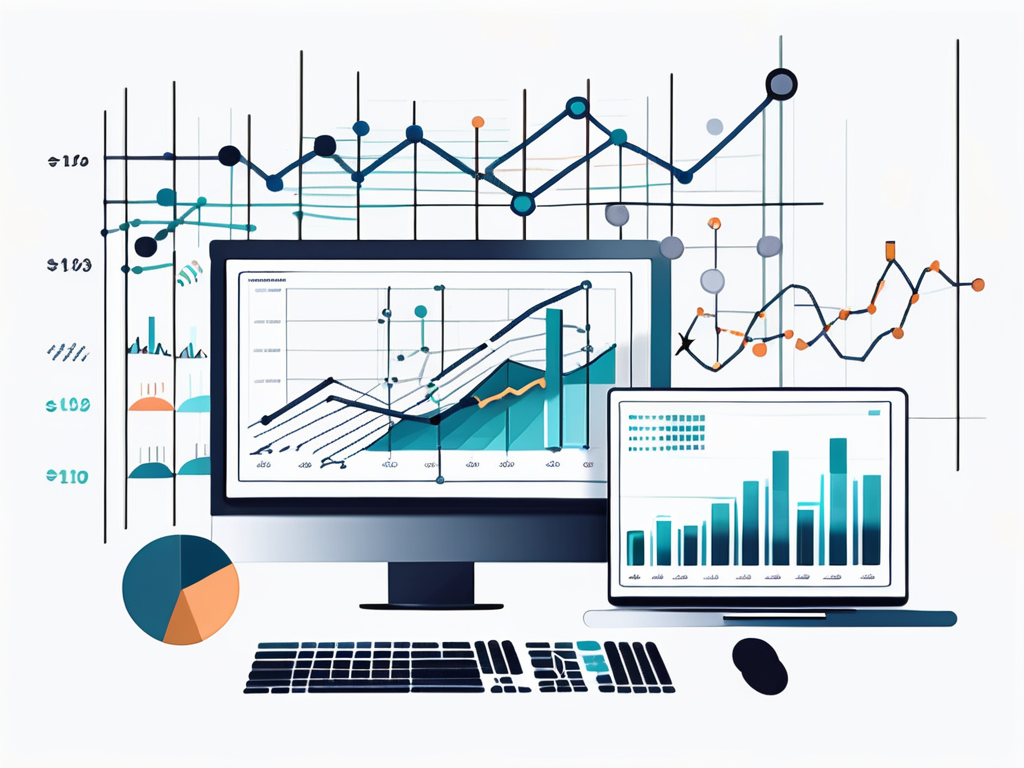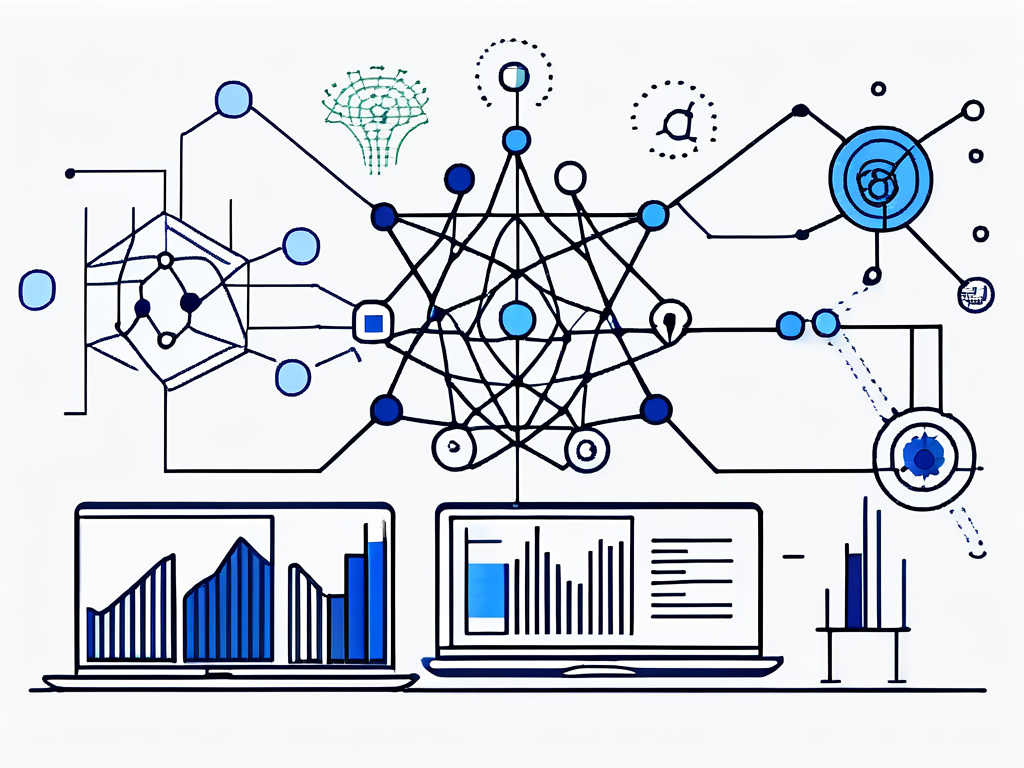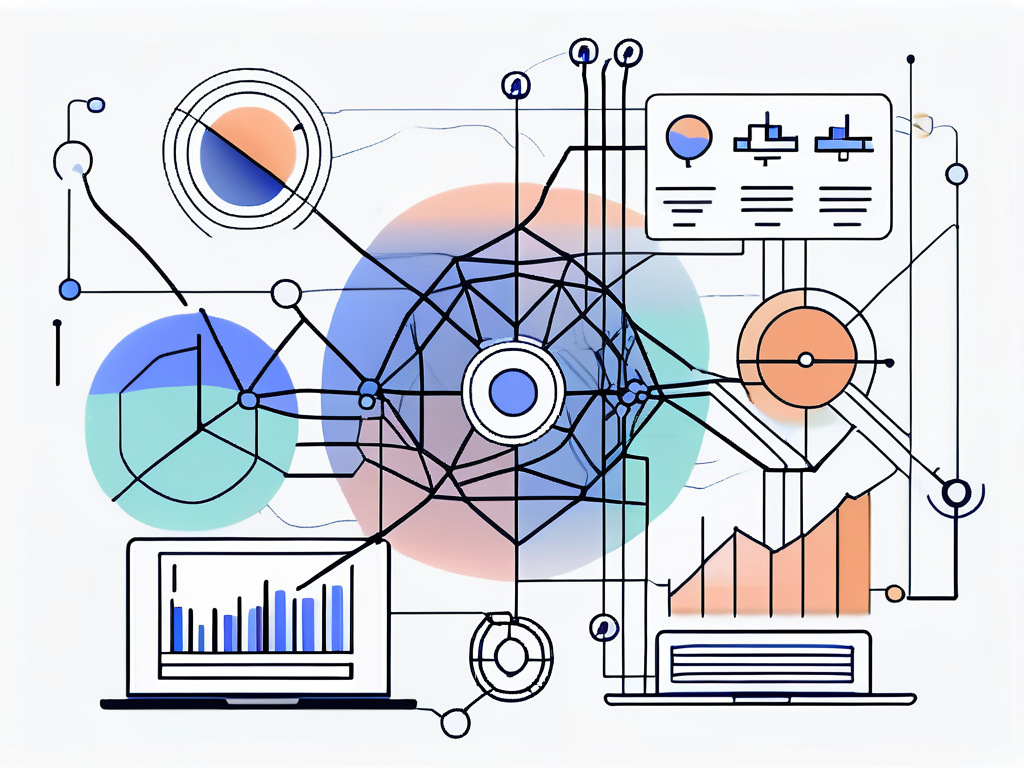In today’s digital age, data science has emerged as a crucial field that drives innovation, decision-making, and problem-solving across various industries. As businesses increasingly rely on data-driven insights, the demand for skilled data scientists continues to grow. If you’re interested in embarking on a career in data science, this comprehensive guide will walk you through the basics and help you navigate the online resources available to learn and master this field.
Understanding the Basics of Data Science
Data science is a multidisciplinary field that combines statistics, mathematics, computer science, and domain expertise to extract insights and knowledge from data. At its core, data science involves collecting, cleaning, analyzing, and interpreting data to make informed decisions and predictions. To embark on a successful journey in data science, it’s essential to familiarize yourself with key concepts.

One crucial concept in data science is exploratory data analysis, which involves understanding and visualizing the data to uncover patterns, trends, and anomalies. Exploratory data analysis is a critical step in the data science process as it helps in identifying outliers, understanding the distribution of data, and gaining initial insights before diving deeper into analysis. Visualizations such as histograms, scatter plots, and box plots are commonly used in exploratory data analysis to provide a clear picture of the data’s characteristics.
Additionally, statistical inference enables data scientists to draw conclusions from data and make predictions about future outcomes. Statistical inference involves using sample data to make inferences or generalizations about a population. It helps in quantifying the uncertainty associated with estimates and testing hypotheses to make data-driven decisions. Understanding statistical inference is vital for assessing the reliability of results obtained from data analysis and ensuring the validity of conclusions drawn.
Another fundamental concept is machine learning, a subset of artificial intelligence that focuses on algorithms and models that can learn from data and make predictions or decisions without being explicitly programmed. Machine learning algorithms are designed to identify patterns in data and make intelligent decisions based on the patterns identified. From recommendation systems in e-commerce to predictive maintenance in manufacturing, machine learning plays a crucial role in automating tasks, optimizing processes, and enabling data-driven decision-making.
Importance of Data Science in Today’s World
The significance of data science in today’s world cannot be overstated. Organizations across industries leverage data science techniques to gain a competitive edge, improve customer experiences, and optimize operations. By unlocking the insights hidden within vast amounts of data, businesses can identify trends, forecast demand, personalize recommendations, and make data-driven decisions that drive growth and success. Data science empowers organizations to harness the power of data to drive innovation, streamline processes, and stay ahead in a rapidly evolving digital landscape.
Exploring Different Data Science Disciplines
While data science as a whole covers a broad range of techniques and methodologies, it also encompasses specialized disciplines that focus on specific aspects of data analysis and interpretation. Let’s take a closer look at some of these disciplines.
Machine Learning and Its Role in Data Science
Machine learning is a crucial component of data science, enabling computers to learn from data and improve performance without being explicitly programmed. It involves developing algorithms and models that can automatically learn patterns and make predictions or decisions. Machine learning has wide-ranging applications, from natural language processing and computer vision to fraud detection and recommendation systems.
One fascinating aspect of machine learning is its ability to adapt and evolve over time. As new data becomes available, machine learning models can update their knowledge and improve their accuracy. This iterative process, known as “online learning,” allows the models to continuously learn and adapt to changing circumstances.
Data Mining Techniques
Data mining techniques involve extracting valuable and actionable information from large datasets. By leveraging statistical and machine learning algorithms, data scientists can identify patterns, correlations, and trends within the data. This information can be used for various purposes, such as customer segmentation, market basket analysis, and outlier detection.
Within data mining, there are different approaches that data scientists can employ. One popular technique is association rule mining, which aims to discover relationships between different items in a dataset. For example, in market basket analysis, association rule mining can reveal which products are frequently purchased together, helping businesses optimize their product placement and marketing strategies.
Predictive Analytics and Its Applications
Predictive analytics is the practice of utilizing historical data to forecast future outcomes and trends. By analyzing patterns in the data, data scientists can develop models that make predictions and optimize decision-making. Predictive analytics has wide-ranging applications, including sales forecasting, risk assessment, and personalized marketing campaigns.
One interesting application of predictive analytics is in the field of healthcare. By analyzing patient data, such as medical records and genetic information, predictive models can help identify individuals who are at a higher risk of developing certain diseases. This information can then be used to provide personalized preventive care and interventions, potentially saving lives and reducing healthcare costs.
Essential Skills for Aspiring Data Scientists
To become a successful data scientist, you need to acquire a diverse range of skills. In addition to technical proficiency, data scientists should also possess strong problem-solving, communication, and critical thinking skills.

But let’s dive deeper into the specific skills that are crucial for aspiring data scientists:
Programming Languages for Data Science
Proficiency in programming languages is essential for data scientists. Python and R are two popular languages in the data science community, offering rich ecosystems of libraries and frameworks for data manipulation, analysis, and visualization. These languages provide data scientists with the flexibility and power to handle large datasets and perform complex computations efficiently. Additionally, SQL is also vital for working with structured databases, allowing data scientists to extract, transform, and load data seamlessly. Moreover, languages like Scala and Julia are gaining popularity in specific domains, such as distributed computing and scientific computing, respectively.
Statistical Analysis and Its Importance
A solid foundation in statistics is fundamental for data scientists. Understanding probability theory, statistical inference, and hypothesis testing allows data scientists to draw meaningful insights and make informed decisions based on data. With statistical analysis, data scientists can validate models, measure uncertainty, and generate meaningful interpretations. They can identify patterns, trends, and correlations in data, enabling them to uncover hidden insights that can drive business strategies and decision-making.
Data Visualization Techniques
Effective data visualization is crucial for presenting insights in a clear and intuitive manner. Data scientists should have an understanding of visualization principles and be proficient in tools like Tableau, Matplotlib, or ggplot, which allow them to create meaningful visual representations of data that facilitate understanding and decision-making. By visualizing data, data scientists can communicate complex information in a concise and impactful way, enabling stakeholders to grasp key insights quickly and make data-driven decisions confidently.
Aspiring data scientists should also focus on developing skills in machine learning, data wrangling, and domain knowledge. Machine learning techniques, such as regression, classification, and clustering, enable data scientists to build predictive models and uncover patterns in data. Data wrangling skills involve cleaning, transforming, and preparing data for analysis, ensuring its quality and reliability. Lastly, domain knowledge is essential for understanding the context and nuances of the data, allowing data scientists to ask the right questions and derive meaningful insights.
Choosing the Right Online Data Science Course
With an abundance of online resources available, choosing the right data science course can be overwhelming. To make an informed decision, consider the following factors.

Embarking on a journey to learn data science online opens up a world of possibilities and opportunities for individuals looking to enhance their skills in this rapidly growing field. The decision to enroll in a data science course is not one to be taken lightly, as it can shape your future career prospects and professional development. By carefully evaluating various factors, you can ensure that you select a course that aligns with your learning goals and aspirations.
Factors to Consider When Choosing a Course
When selecting an online data science course, consider the course curriculum, instructor expertise, delivery format, and the level of support provided. Look for courses that offer hands-on projects and real-world case studies to help you apply your learning and gain practical experience.
Furthermore, it is essential to assess your own learning style and preferences to determine whether a self-paced course or a more structured program would be the best fit for you. Understanding your strengths and areas for improvement can guide you in selecting a course that will challenge you appropriately and facilitate your growth as a data scientist.
Top Online Platforms for Data Science Learning
Several online platforms offer comprehensive data science courses and programs. Platforms like Coursera, edX, and Udacity host a range of courses taught by industry experts and renowned universities. These courses typically cover a wide range of topics and provide learners with the flexibility to learn at their own pace.
Moreover, these platforms often offer specialization tracks or certificate programs that allow you to delve deeper into specific areas of data science, such as machine learning, data visualization, or big data analytics. By leveraging the resources and expertise provided by these online platforms, you can gain valuable insights and skills that are highly sought after in today’s data-driven job market.
Building a Career in Data Science
As the field of data science continues to evolve, so do the career opportunities available. From entry-level positions to high-profile roles, data science offers a plethora of exciting career paths.
One of the most sought-after job opportunities in data science is that of a data scientist. Data scientists are responsible for collecting, analyzing, and interpreting large sets of data to uncover valuable insights and drive informed decision-making. They use statistical techniques, machine learning algorithms, and programming skills to extract meaningful information from complex datasets. With the increasing reliance on data-driven strategies in various industries, the demand for skilled data scientists is on the rise.
In addition to data scientists, there are other job titles in the field of data science that offer promising career prospects. Data analysts play a crucial role in examining data to identify patterns, trends, and correlations. They help organizations make data-driven decisions by providing valuable insights and recommendations. Machine learning engineers, on the other hand, focus on developing and implementing machine learning algorithms and models. They work closely with data scientists to build scalable and efficient systems that can process and analyze vast amounts of data.
Job Opportunities in Data Science
Data science professionals are in high demand across various industries, including finance, healthcare, e-commerce, and technology. These industries recognize the immense value of data and are actively seeking professionals who can harness its potential. In finance, data scientists are instrumental in developing predictive models for risk assessment and fraud detection. In healthcare, they analyze patient data to improve treatment outcomes and optimize resource allocation. In e-commerce, data scientists help companies understand consumer behavior and personalize marketing strategies. And in the technology sector, they contribute to the development of innovative products and services.
These roles come with competitive salaries, opportunities for growth, and the chance to work on cutting-edge projects that make a real impact. Data scientists and other data science professionals have the opportunity to shape the future by leveraging the power of data to drive innovation and solve complex problems.
Preparing for Data Science Interviews
Securing a data science position often requires going through a rigorous interview process. To prepare for data science interviews, it is essential to have a strong foundation in technical skills and be ready to showcase your problem-solving abilities. Employers often assess candidates’ proficiency in programming languages such as Python or R, as well as their knowledge of statistical concepts and machine learning algorithms.
In addition to technical skills, it is crucial to familiarize yourself with common interview questions and be prepared to explain your previous projects and their outcomes. Employers are interested in understanding how you approach and solve real-world problems using data science techniques. Being able to communicate your thought process and the impact of your work is essential in demonstrating your value as a data science professional.
Continuous Learning and Upgrading Skills in Data Science
Data science is a rapidly evolving field, and it’s crucial to stay updated with the latest tools, techniques, and trends. Engaging in continuous learning is key to staying ahead in this dynamic industry. One way to do this is by attending conferences and industry events where you can learn from experts, network with peers, and gain insights into emerging technologies and best practices.
Participating in online communities and forums dedicated to data science is another valuable way to stay connected and learn from others in the field. These communities provide a platform for sharing knowledge, discussing challenges, and collaborating on projects. They also offer opportunities to showcase your work and receive feedback from experienced professionals.
Exploring new online courses or certifications is another effective way to upgrade your skills. Many reputable institutions and online platforms offer specialized data science courses that cover a wide range of topics, from machine learning and deep learning to data visualization and big data analytics. By investing in continuous learning and acquiring new skills, you’ll stay ahead of the curve and enhance your career prospects in the dynamic world of data science.
By following this ultimate guide to data science online, you’ll gain a solid understanding of the key concepts, explore different disciplines, acquire essential skills, choose the right online course, and build a successful career in data science. Embrace the exciting world of data science and unlock the power of data to drive innovation and make a tangible impact in today’s data-driven world!

Leave a Reply